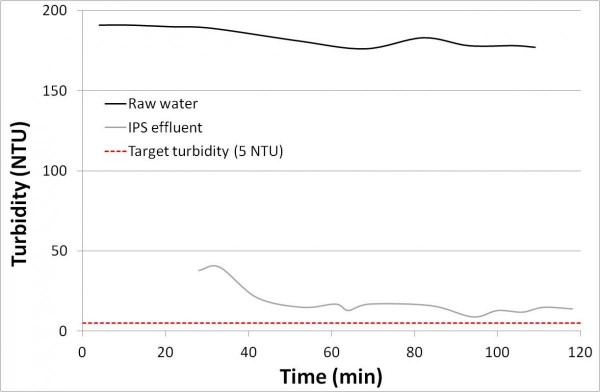Shaping the future: Our strategy for research and innovation in humanitarian response.

Shaping the future: Our strategy for research and innovation in humanitarian response.

Greetings from India!
During the first half of the project we worked on the initial testing phase of the product in Pune (India) in partnership with Aquaplus (a disaster relief equipment manufacturer) and RedR-India. We are now approaching the end of our initial testing phase and are pleased to report good results! Below is a picture of the prototype being tested – an important phase to ensure the process works before moving on to designing and manufacturing the final product.

We tested in India due to our Aquaplus’ expertise in manufacturing emergency water treatment equipment. In addition to this, the testing facilities in Pune have been designed to simulate conditions that could be expected in the field. This way, we expect to design out issues that could potentially arise when the plate settler gets deployed. We realise the importance of such considerations after conducting our previous ELRHA-funded project (High science in low-tech emergency settings: a foreseeable horizon or the height of folly?), where this important process was slightly overlooked.
Our initial testing (see figure below) revealed the potential of plate settling for emergency water treatment. Here we can see that relatively high turbidities can be reduced considerably. Although the first tests did not achieve the Sphere Project water quality target of 5 NTU, we can see that the output of the system is very stable despite any fluctuations in the incoming turbidity. This is a very important characteristic which will be a major advantage over other treatment systems which are based on media (sand) filtration. Such systems are susceptible to high turbidity loadings and tend to clog rather quickly with deteriorating water quality; meaning that the overall production of clean water is affected. Therefore, if we are able to further optimise the system to achieve a final effluent below 5 NTU, the inclined plate settler will be potentially one of the most efficient systems available (which is very exciting!).

Moving forward, we are working on the optimisation of the system. We hope to be reporting back soon with good news from Pune. To help with this, part of the optimisation will also be carried out at the Université Laval. There we have commissioned a scaled down version of the prototype, on which we can conduct specific testing under controlled conditions. Such testing is not possible in India and will provide valuable information to feedback into the design.
Cheers!
Caetano
Through this blog we will be posting further information on the innovation, timely developments in the sector related to the project, and updates, but if you have specific questions or want more detailed information, please do not hesitate to contact us ([email protected](link sends e-mail)).

 Please upgrade your browser
Please upgrade your browser
You are seeing this because you are using a browser that is not supported. The Elrha website is built using modern technology and standards. We recommend upgrading your browser with one of the following to properly view our website:
Windows MacPlease note that this is not an exhaustive list of browsers. We also do not intend to recommend a particular manufacturer's browser over another's; only to suggest upgrading to a browser version that is compliant with current standards to give you the best and most secure browsing experience.